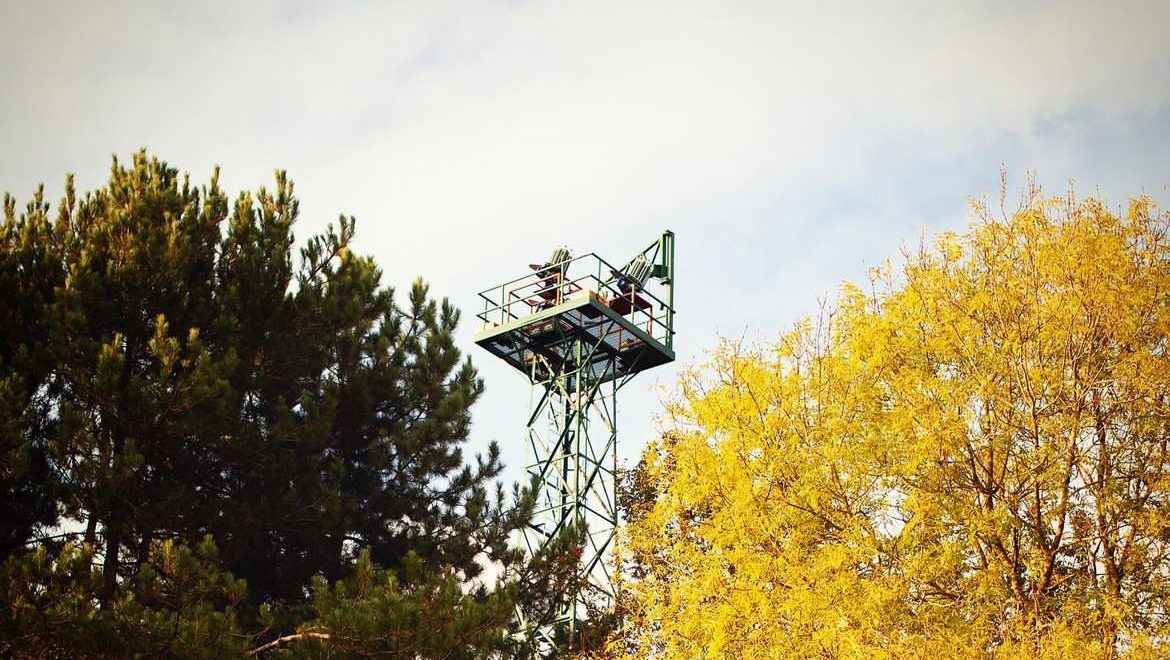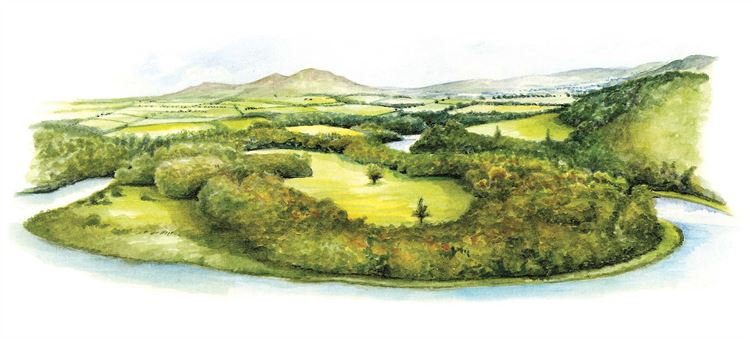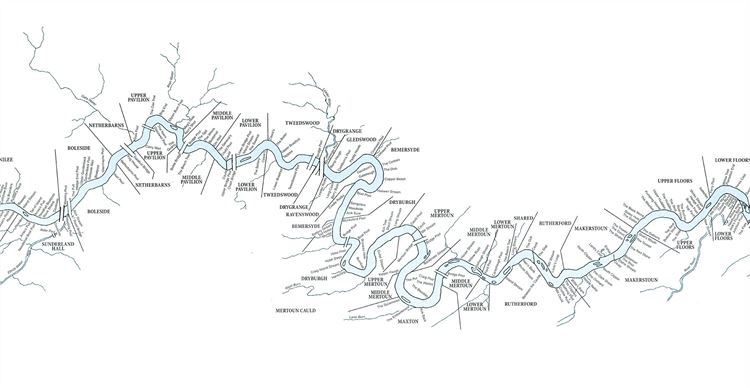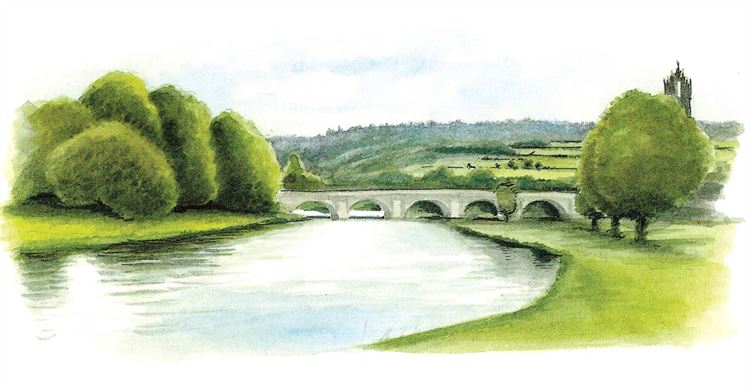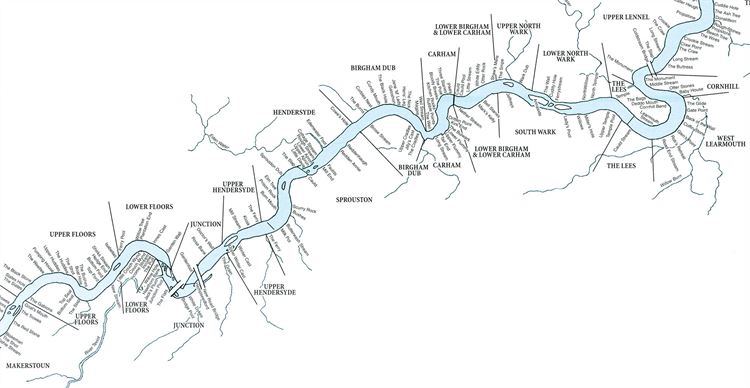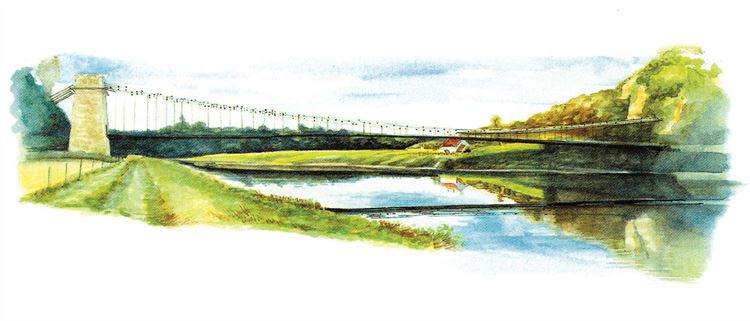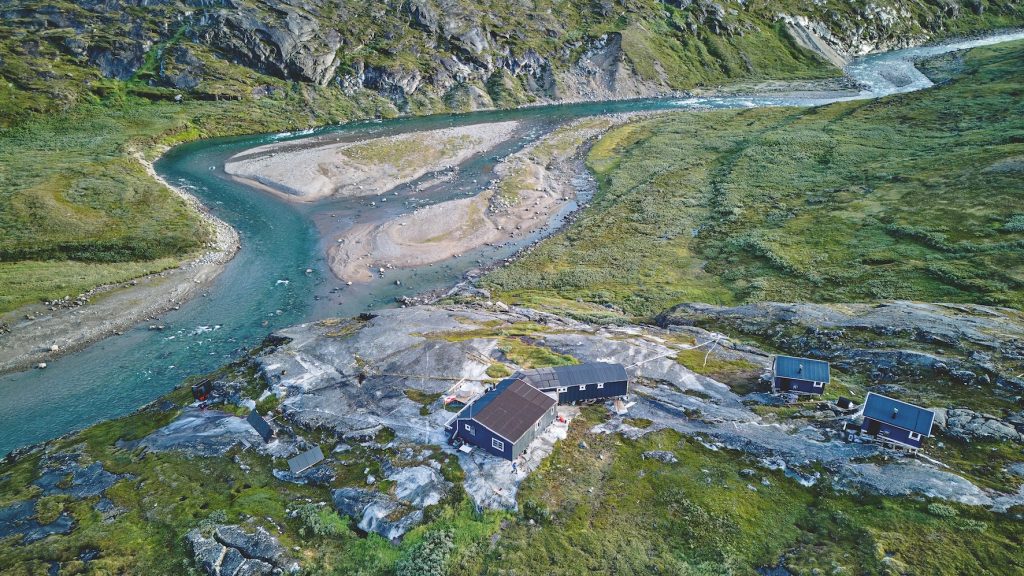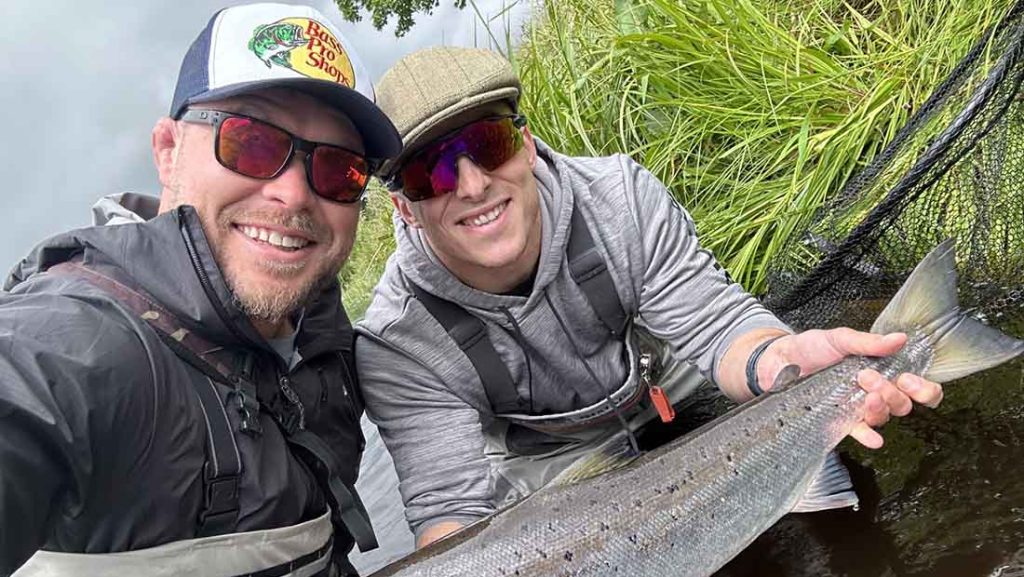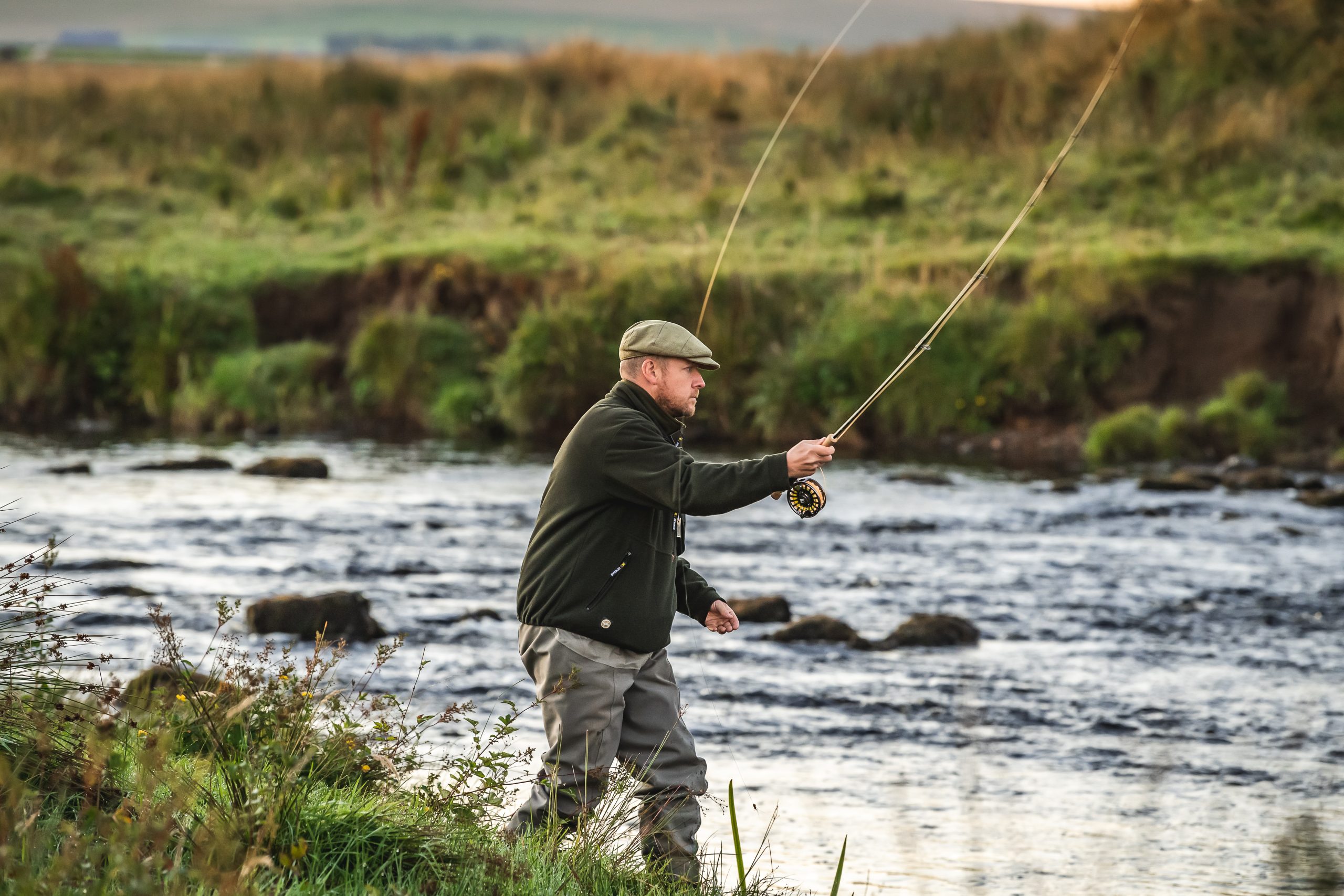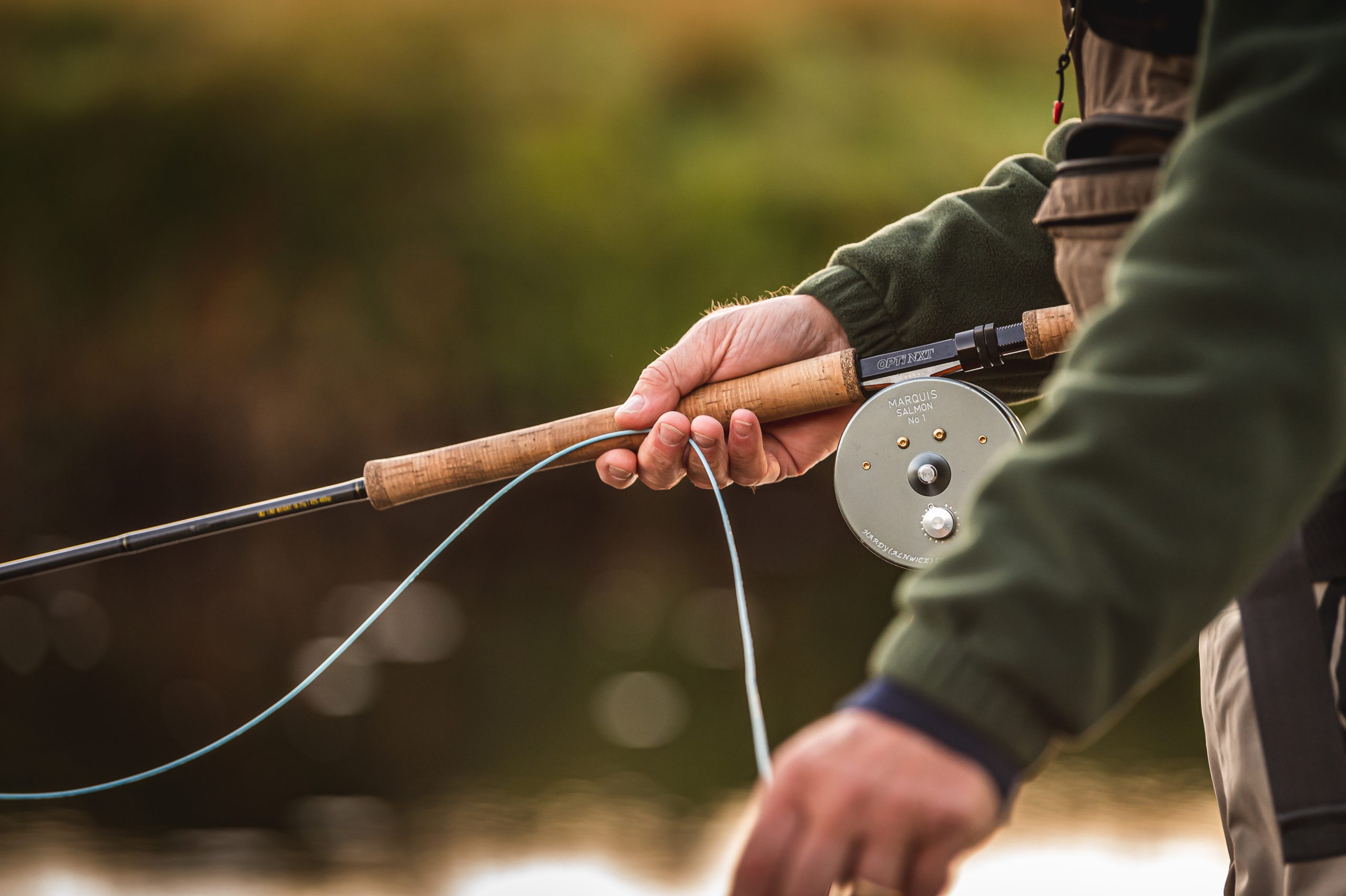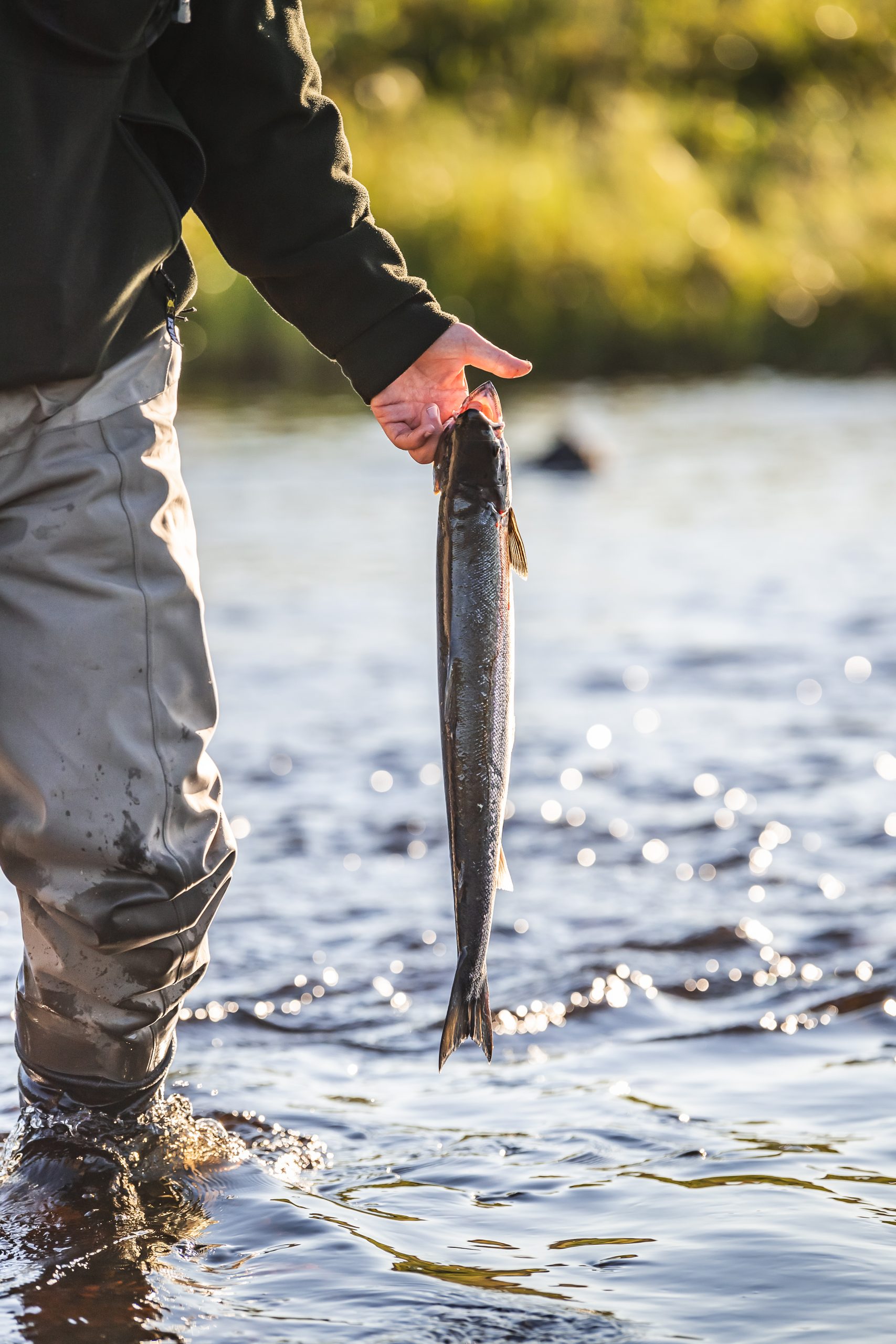Fly fishing
A pool by the name of… part 2
Some salmon pools have fascinating tales attached to them, as veteran journalist, broadcaster and TV presenter Jeremy Paxman explains.
Would you like to appear on our site? We offer sponsored articles and advertising to put you in front of our readers. Find out more.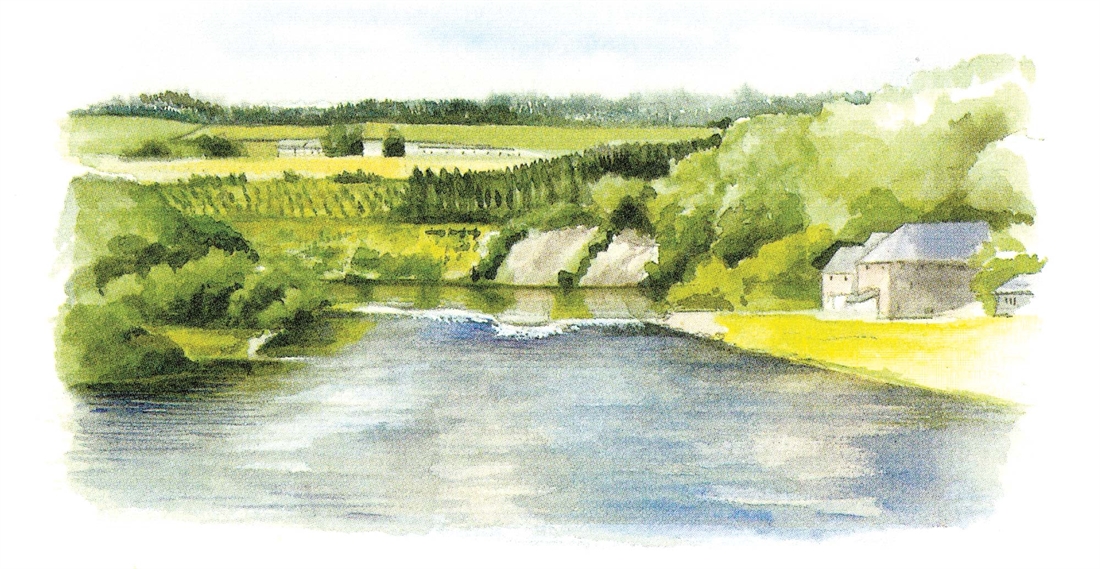
Very few fords – or pools – have such epochal tales attached to them as Cumberland’s Ford, as discussed in the last issue. But each has its magic. The favourite pool of a friend who used to fish the river Torridge in Devon was called Monument, just below the junction with the River Okement. Noticing the construction from which the pool took its name on the far bank, he decided to leave his fishing tackle behind and wade across to see what or whom was commemorated. The crossing was much more difficult than he had imagined and he realised that in normal circumstances he would never have attempted it. He finally slithered and stumbled his way across to the far bank to discover the monument celebrated the memory of a man who had died while wading across. Can any of us who enjoy wading honestly say we have never felt that awful ‘oh dear, this is it’ sensation as a strong river whips the gravel from under our feet?
But back to names. The grass on the banks of Ladies’ Pool at Taymouth Castle was kept short enough for females to fish without getting their dress hems damp or mucky. At the other end of the scale I have never been able to look with quite the same excitement upon any fish caught off Dritten point on the Carham beat of the Tweed since discovering that ‘drite’ is an old verb for evacuating the bowels. The Carham laird prefers to think the name might have come from the German for ‘three’ or ‘third’, or possibly have something to do with the fact that it is so hard to fish properly. Let us leave him to his dreams – it’s a beautiful beat.
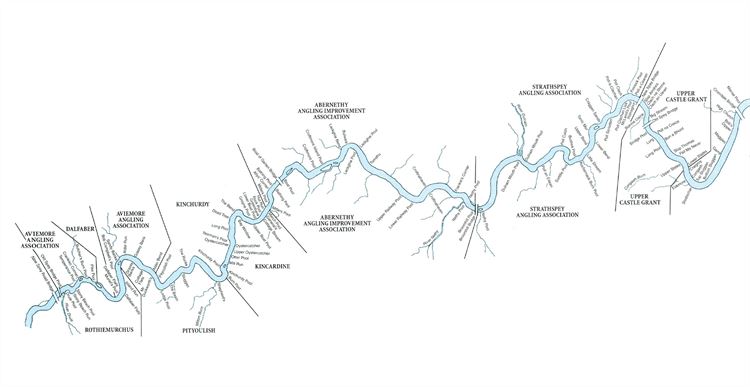
Scott’s view and the Eildons
Language is a greater obstacle in Scotland than it is on English rivers. The most productive pool on the Lower Blackhall and Kineskie beat on the Aberdeenshire Dee is called Bohore, which may originally have been ‘buhoor’ or ‘little corner’ in Scots. John Ashley-Cooper thought it one of the best grilse pools on the river and the golf course at Banchory christened one of its holes ‘Bohore’ in its honour.
However prosaic some of them seem, the names of salmon pools take us back to a time when rivers were a more important part of our lives than as mere leisure destinations, when they created legends, provided power and determined how transport systems worked. Flowing water has a mystery attached to it, and most rivers seem to have their own tales of sorcery, curative powers and ancient kingdoms. Meg’s Hole at Upper Pavilion on the Tweed remembers ‘Black Meg’, a supposed witch and common-law wife of the medieval fortune-teller and purveyor of doggerel to the gentry, ‘Thomas the Rhymer’, who was thrown into the river and drowned. Her body was never found. Lovers’ Leap at Rutherford – also on Tweed – commemorates a young man tossed into the river by the angry father of the girl with whom he was caught canoodling. She threw herself in afterwards. Keith’s Pot at Park on the Dee, recalls another love affair that ended unhappily. The names of salmon pools summon up a long-gone Britain, and I love them for that.
Britain is an old country and it takes aeons for names to change. But new destinations invite naming. Ten years ago, when a couple of visiting old codgers started catching fish from an unnamed pool on the Rio Gallegos in Argentine Patagonia, they named it ‘Seniors’. A rather uncouth party on the Yokanga in Russia have named the most productive pool on the river ‘Spearmint Rhino’, on the grounds that “it is where gentlemen like to go after dinner” – not that any one of them would recognise a gentleman if they tripped over him.
Peebles Bridge
And even in Britain, time moves on. There is an irritating rock in the middle of the tail of the tediously named ‘Bend Pool’ on the Gruinard river in Wester Ross. One lunchtime, Colonel Peter Dunphie, husband of the chatelaine, was lamenting the fact that he had lost three fish round the rock. During the Second World War he had been Military Assistant to Field Marshall Alan Brooke, Chief of the Imperial General Staff. “That rock,” he exclaimed in the fishing hut at lunchtime, “has given me more trouble than fucking Hitler”. It has been known as Hitler’s Rock ever since.
And the environment can change, too: I forget what the pool on the Thurso is called where you have to cast beneath wind turbines. They make a maddening, thudding noise as they spin. The pool should be renamed something like ‘Insanity Corner’.
There is, of course, no reason to believe that a romantic name will yield a romantic fish. The biggest springer caught on my favourite river, the Naver, in recent years was taken in something called the Potato Park, where a crofter digs his spuds.
My favourite name, though, belongs to a pool on the River Tweed which, for part of its journey, marks the border between England and Scotland. Andrew Douglas-Home, a man who in his youth was considered something of a catch himself (at least he thought so) keeps an 18th-century letter in his desk in the house he currently occupies next to the river. In the letter, Lord Home’s nephew begins with the usual fishing bragging, telling of how, in 1743, his uncle had caught a 69¾lb salmon.
It is true that his lordship didn’t lack for fishing opportunities, since he was the owner of the northern, or Scottish, bank of the river by the village of Wark. The finest angler in his household, though, was called Jeffrey.
Jeffrey was a massive Newfoundland dog. The letter says that he “knew the Monday mornings as well as the fishermen” when he used to go and stand by the ‘slap’ – the opening left in a weir to allow salmon to swim upstream to spawn. Jeffrey was better at catching fish than most of the anglers who today arrive on the riverbank in the most expensive Goretex, clutching state-of-the-art tackle. During a usual morning’s fishing, according to the letter, he caught ‘from 12 to 20 salmon’. Each fish the dog deposited on Lord Home’s side of the river.
Union Suspension Bridge
The owner of the southern shore, the Earl of Tankerville, eventually got so irritated that he brought a lawsuit against Jeffrey in the Court of Session, Scotland’s supreme civil court: ‘The Earl of Tankerville versus a dog, the property of the Earl of Home’. The wigged and gowned learned gentlemen deliberated and eventually gave judgement in favour of the dog. The pool – on the South Wark beat – is still called Jeffrey’s. FS
If you would like to purchase map prints, contact Nigel Houldsworth on +44(0)1835 822485 or visit www.fishingmaps.co.uk
Related articles
Fly fishing
On a spey quest
Avid fly angler and photographer Rasmus Ovesen embarks on his first ever trip to Greenland and loses his bubbling spey heart to the Kangia river
By Time Well Spent
Get the latest news delivered direct to your door
Subscribe to Fieldsports Journal
Elevate your experience in the field with a subscription to Fieldsports Journal, the premium publication for passionate country sports enthusiasts. This bi-monthly journal delivers unparalleled coverage of game shooting, fishing and big game across the UK and beyond.
Each issue offers a stunning collection of in-depth features, expert opinions and world-class photography, all presented in a timeless yet contemporary design. By subscribing, you’ll gain access to authoritative content from plain-speaking writers who tackle complex subjects with confidence and experience.
Plus, UK subscribers enjoy exclusive benefits including £2 million Public Liability Insurance for recreational and professional use of shotguns, rifles and airguns. Whether you’re a seasoned shooter or an intrigued novice, a Fieldsports Journal subscription is your gateway to enhancing your field sports endeavors and staying connected to the country way of life.
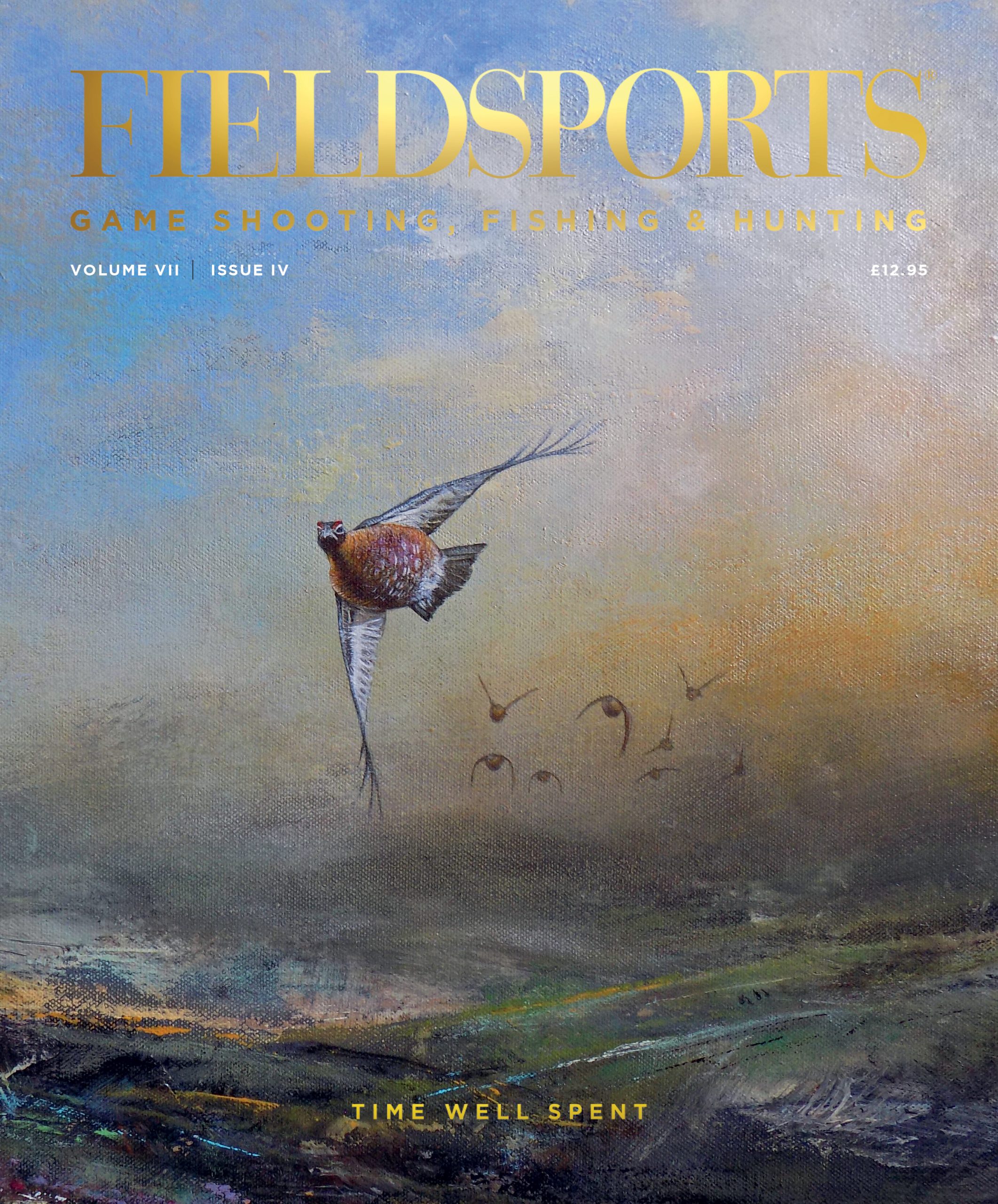
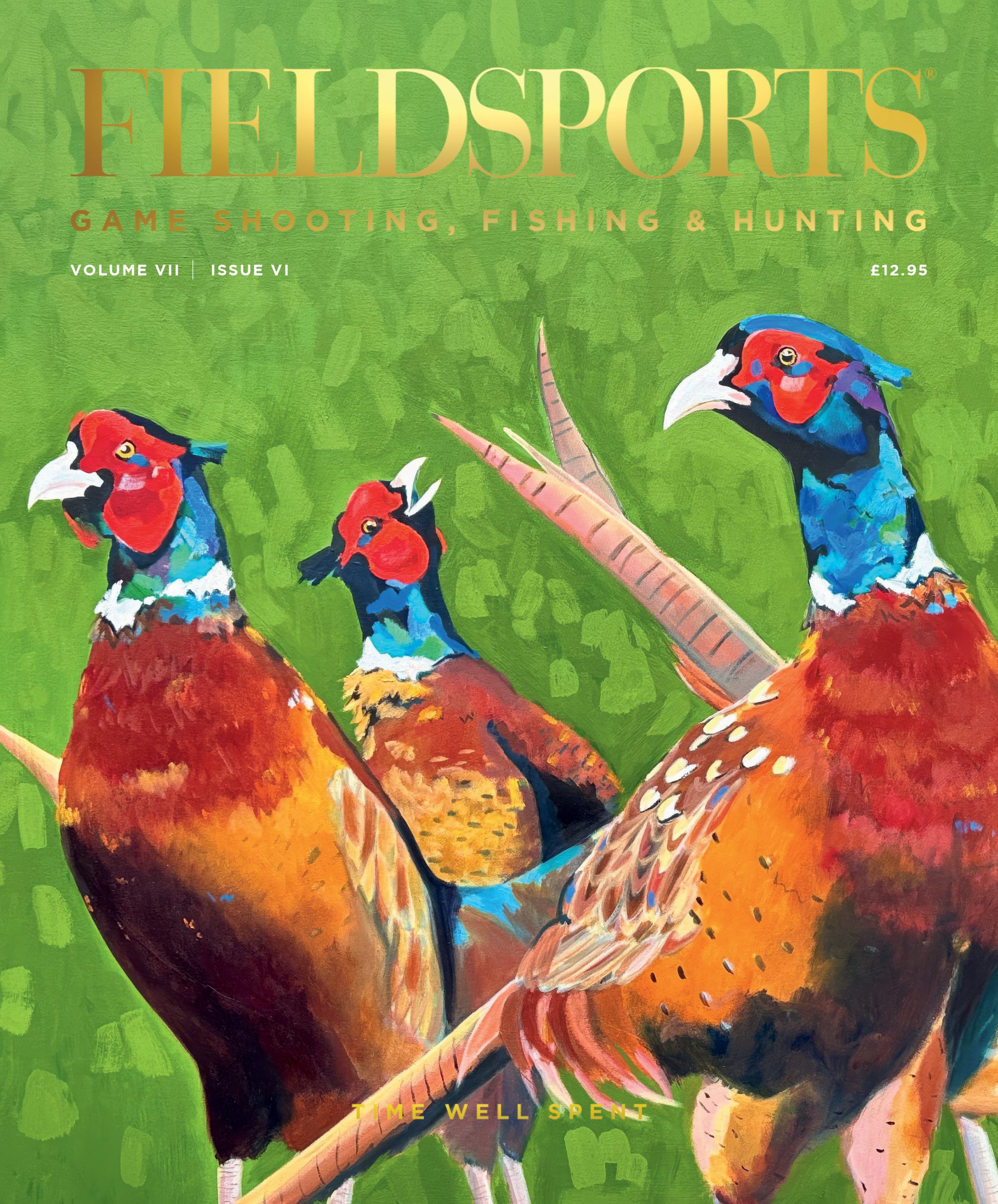
Manage Consent
To provide the best experiences, we use technologies like cookies to store and/or access device information. Consenting to these technologies will allow us to process data such as browsing behavior or unique IDs on this site. Not consenting or withdrawing consent, may adversely affect certain features and functions.
Functional Always active
The technical storage or access is strictly necessary for the legitimate purpose of enabling the use of a specific service explicitly requested by the subscriber or user, or for the sole purpose of carrying out the transmission of a communication over an electronic communications network.
Preferences
The technical storage or access is necessary for the legitimate purpose of storing preferences that are not requested by the subscriber or user.
Statistics
The technical storage or access that is used exclusively for statistical purposes.
The technical storage or access that is used exclusively for anonymous statistical purposes. Without a subpoena, voluntary compliance on the part of your Internet Service Provider, or additional records from a third party, information stored or retrieved for this purpose alone cannot usually be used to identify you.
Marketing
The technical storage or access is required to create user profiles to send advertising, or to track the user on a website or across several websites for similar marketing purposes.


